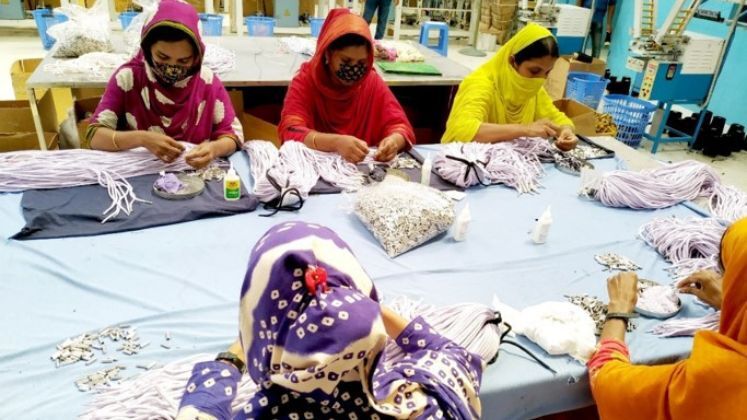
The Bangladesh-based garment accessories and packaging industry has voiced concerns over longstanding neglect and discriminatory policies, urging the government to undertake urgent reforms to support the sector, which is vital to the country’s US $ 8 billion RMG export industry.
In a letter addressed to the Bangladesh Investment Development Authority (BIDA), the Chattogram Garments Accessories Association (CGAA) outlined a five-point reform agenda aimed at fostering growth and addressing persistent challenges faced by manufacturers of zippers, buttons, cartons, labels, poly-bags, hangers and tags.
The industry, a crucial backward linkage to the RMG sector, has historically been overlooked in national policies. Despite its significant role in reducing lead times and enhancing competitiveness for Bangladesh’s garment exports, accessories and packaging manufacturers remain outside the scope of the National Industrial Policy (2016), which lists 24 priority sectors but excludes the accessory and packaging segment.
CGAA claims this exclusion amounts to policy-level discrimination, hindering investment and capacity development. The sector faces issues such as payment delays of up to ten months, denial of continuous bond facilities, granted to garments and textiles and regulatory uncertainties that deter foreign investment.
Jamil Ahmed, acting president of CGAA and a director of BGAPMEA, told The Business Standard, “Our industry faces financial constraints, lack of incentives and policy neglect. We highlighted these issues in our letter to BIDA.”
The association also met with Md Mokhlesur Rahman, Secretary of BIDA’s Investment Ecosystem and Sanawarul Kabir of the National Board of Revenue (NBR), who assured them that their concerns would be taken seriously once the BIDA chairman returns to the country from abroad.
The five-point reform agenda proposed by CGAA includes establishing a one-stop digital platform for registration, licensing and bond processing; providing continuous bond facilities similar to those available for garments and textiles; offering fair cash incentives aligned with export contributions; introducing tax rebates for investments in ERP systems, research, training, CSR and compliance tools; and formally recognizing the sector within the RMG supply chain to ensure its sustainability.
CGAA has called on the interim government to commission a sector survey and implement these overdue reforms to restore confidence among investors and enable the industry to realize its full potential.






